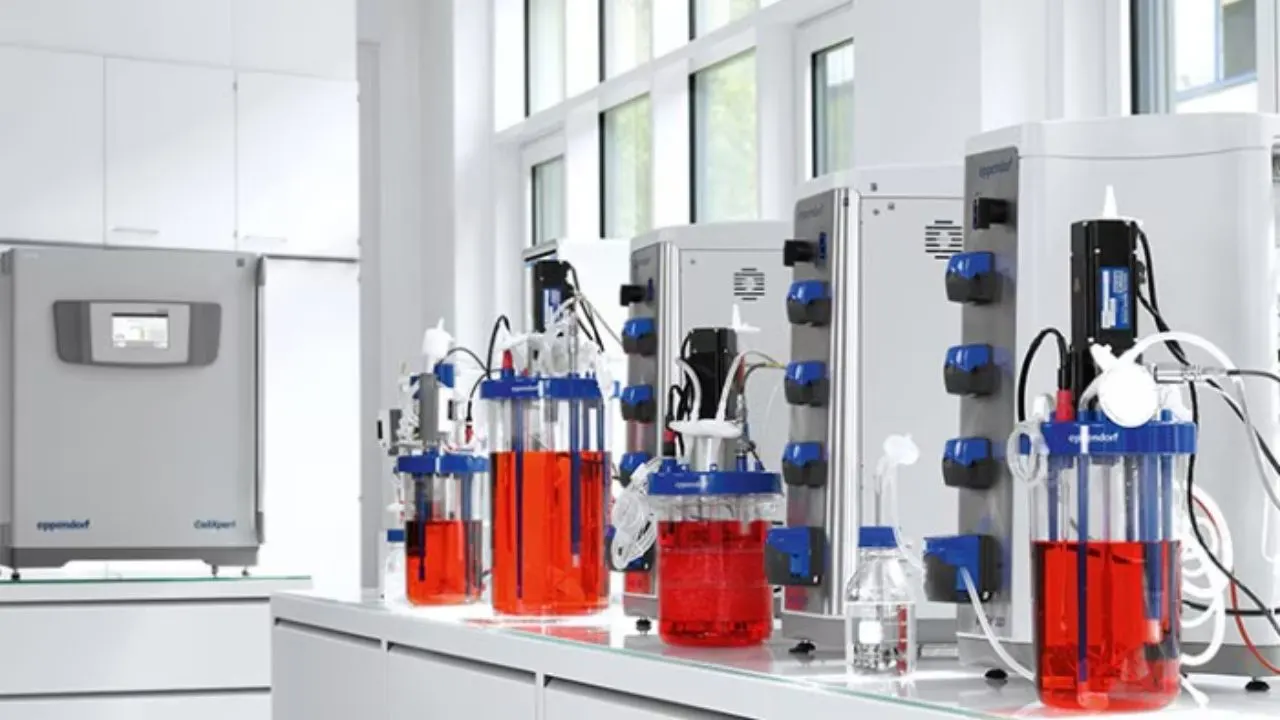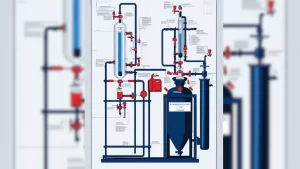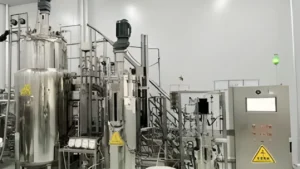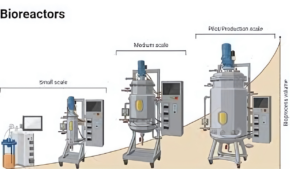A bioreactor is a specially designed vessel that provides a controlled environment for the growth of microorganisms, cells, or tissues. Choosing the right type of bioreactor depends on the nature of the biological process, scale of operation, and product requirements. At Fermenter Technologies, we proudly offer advanced bioreactor systems and complete laboratory setups built to research and industrial applications. As one of the leading bioreactor manufacturers, we understand the need for precision, efficiency, and reliability in every bioprocess. Our team helps scientists, researchers, and industrial clients achieve high-quality results with state-of-the-art equipment.
What Is a Bioreactor?
A bioreactor is a controlled vessel designed to support biological reactions by maintaining optimal conditions such as temperature, pH, oxygen level, and agitation. The primary objective of a bioreactor is to create an environment that promotes cell growth and product formation efficiently.
Types of Bioreactor Laboratory
At Fermenter Technology, we proudly offer and provide a wide range of laboratory-scale bioreactors that support researchers, students, and industry professionals in their pursuit of innovation.
- Stirred Tank Bioreactors (STRs): Stirred Tank Bioreactors are versatile and ideal for microbial and cell culture processes.
- Airlift Bioreactors: Unlike stirred tanks, airlift bioreactors do not rely on mechanical agitation. Instead, they use air or gas bubbles to circulate the liquid inside the vessel.
- Bubble Column Bioreactors: These are simpler in design compared to stirred tanks and airlift systems. In bubble column bioreactors, gas is sparged from the bottom of the vessel, creating bubbles that provide aeration and mixing.
- Photobioreactors (PBRs): As the name suggests, photobioreactors are designed to harness light for biological processes. They are mainly used to grow algae, cyanobacteria, and other photosynthetic organisms.
- Packed Bed Bioreactors: In this type, the bioreactor contains a packed bed of solid materials where cells are immobilized and grow.
- Membrane Bioreactors: Membrane bioreactors integrate a filtration system with the biological process. They allow selective transfer of gases, nutrients, or metabolites through membranes.
- Wave Bioreactors: Wave bioreactors are relatively modern systems where a disposable bag containing the culture medium is rocked gently back and forth.
- Single-Use Bioreactors: Single-use systems are gaining popularity in modern laboratories because they cut down cleaning and sterilization time. They are pre-sterilized and ready to use, saving time and reducing cross-contamination risks.
Also Read: What Are The Types Of Bioreactors
Why Choose Fermenter Technologies?
When it comes to bioreactor solutions, Fermenter Technologies is one of the most trusted bioreactor manufacturers in the industry. Our team of engineers and bioprocess specialists offer tailored solutions for laboratories, universities, and industries engaged in research and production.
Our Strengths Include:
- Cutting-edge technology and precision control systems
- Custom design and scalable options
- Robust construction using high-quality materials
- Comprehensive after-sales support and training
Different types of bioreactor laboratory systems serve various biological processes and production goals. Understanding each type helps researchers choose the right equipment for their specific applications. From stirred tank bioreactors to photobioreactors, every design serves a unique purpose in advancing biotechnology.
At Fermenter Technologies, we are dedicated to helping you achieve success in every bioprocess. We offer world-class bioreactor systems, expert consultation, and customized solutions that empower innovation, efficiency, and sustainability.




